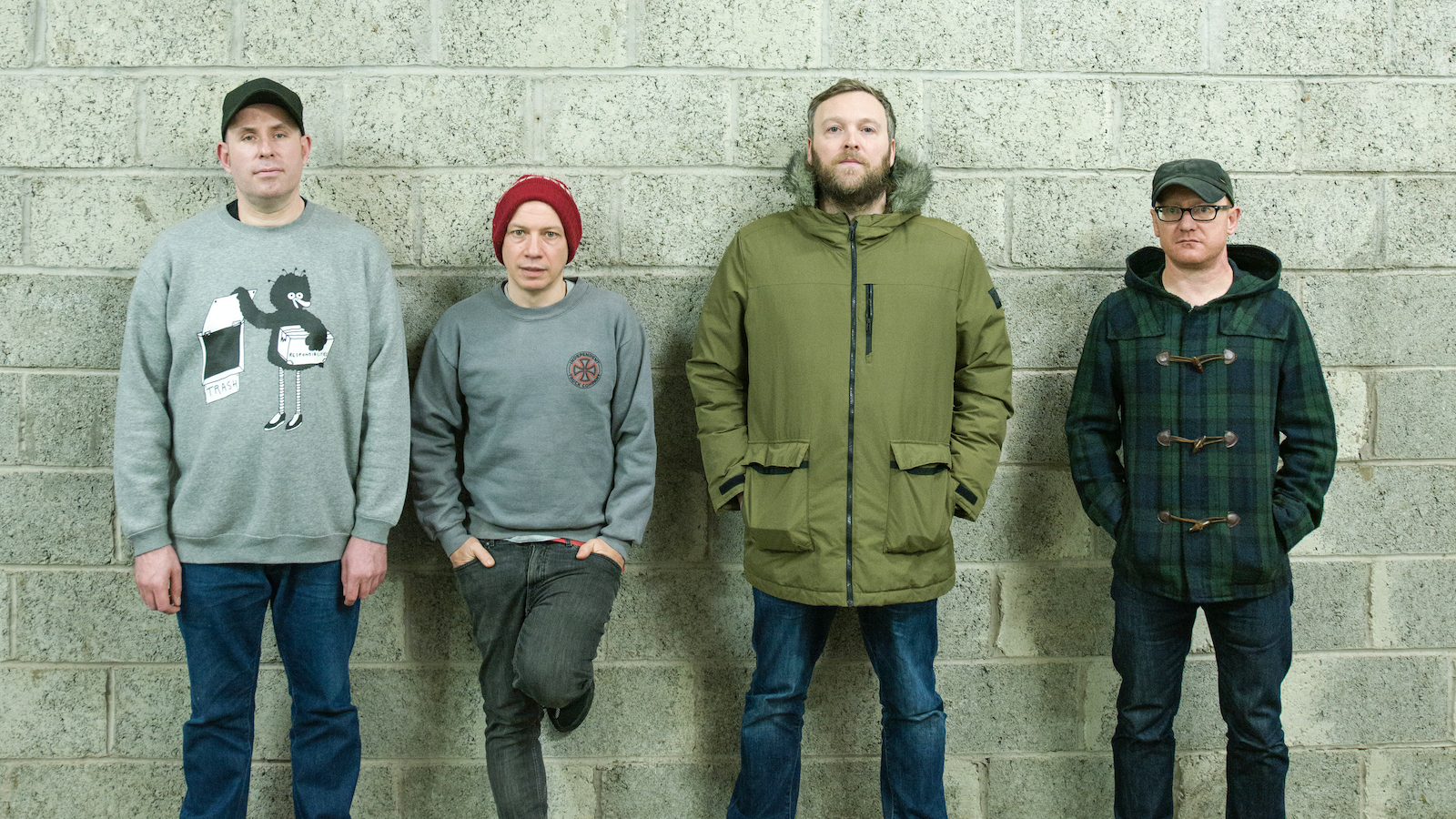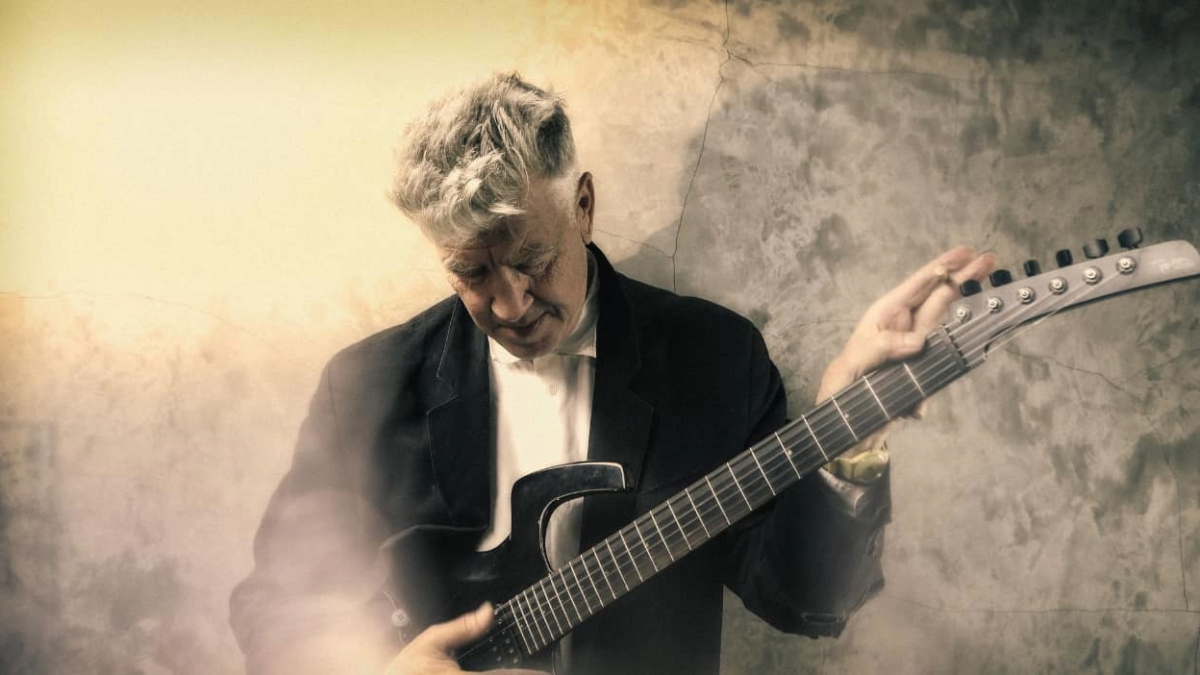Mogwai’s Stuart Braithwaite: “2020 was such a crazy year that we were just trying to get through it more than anything else”
(Mostly) instrumental alt-rockers Mogwai head for the skies on their massive (and magnificent) tenth album

Note: this article is also featured in Australian Guitar #142, which is out now wherever great magazines are sold! Click here to read more about what’s in this jam-packed issue!
What did you do to kill the time during last year’s (seemingly never-ending) lockdown period? Did you jump on the breadmaking bandwagon and master the art of the ultimate sourdough? Did you start teaching yourself how to use Photoshop so you could make those second-rate holiday snaps from 2018 really pop? Or did you finally get around to flicking your way through the collection of books you can’t help but keep adding to?
No matter how we all powered through the rough bit of the pandemic, the important thing is that we all got through it… And that we now have some killer new music to sink our teeth into. Because while most of us used our lockdown bubbles to focus on new hobbies and old to-do lists, the rockers of the world bucked down on their pedalboards, pouring all of their COVID‑fuelled anxiety into scratching up some sweet, sweet tunes.
Our current favourite product of such is the new romp from Scottish post-rockers Mogwai, As The Love Continues. For their momentous tenth full-length effort, the semi-instrumentalists journey through a wide-sprawling canvas of their musical influences throughout the years – from tepid, slow‑burning prog jams to rich, riff-driven toe‑tappers. It plays out like a ‘greatest hits’ compilation of Mogwai tunes that never previously existed – and because the foursome had plenty of extra time to chip away at it from home, each individual soundscape is jaw-droppingly dense and beautifully calculated.
To find out how this hourlong anthology of Mogwai’s best talents came to life, Australian Guitar had a quality yarn with guitarist, bassist and (occasional) vocalist Stuart Braithwaite.
With last year being Mogwai’s 25th anniversary, did you head into this record with much reflection on where you’d started and where you’d progressed over the past two-and-a-half decades?
To be honest, 2020 was such a crazy year that we were just trying to get through it more than anything else. There was definitely still a sense that it was a landmark, but everything was so nuts and so stressful – and making the record on top of it all… In the end, it ended up being totally fine, but there were a lot of obstacles to get over. We were meant to go record this album in America, but we obviously had to change that plan and ended up going to England – which was cool; it ended up being a really nice experience. There was just a lot of uncertainty – and there still is, y’know, not knowing when we can play a show or do anything like that.
What was it like making the record in England with Dave Fridmann in the role of e-producer?
It was great, actually! I mean it would have been great to actually be in the room with him, but we had him on video call for the whole process, so he was still very involved. He’s also got a good relationship with Tony [Doogan] who engineered the record, so they were making a lot of decisions together. Tony knew exactly what Dave meant with every suggestion he made, so it actually went super smoothly, I can’t complain about it at all. It was kind of surreal at first, but we got over that after a day or two.
All the latest guitar news, interviews, lessons, reviews, deals and more, direct to your inbox!
Do you think that recording process had an impact on how record sounds, as opposed to how it might have if you were able to make it in the States?
I think the songs are better because we had a few extra months to work on them. We ended up doing it in the late summer, early autumn – rather than in May as we’d initially planned. So I think the songs were in better shape because of that. Also, in a general sense, being in lockdown was good for working on music, because you couldn’t go anywhere or be distracted by anything. That definitely helped. Shutting all the pubs is a good way to keep musicians in check [laughs].
What about the creative dynamic between the four of you in the band? Having to write separately and throw ideas back and forth, did you find that things came together with a different kind of atmosphere than they normally do?
To be honest, we’ve been doing that for a while anyway. Barry [Burns; guitar, piano, synthesiser and vocals] has been living in Berlin for almost ten years, so it was nothing new. It’s a pretty good way to work, to be honest! It would’ve been nice to get together and rehearse as a unit a little sooner, but I’m sure we would’ve played the same amount – it just would’ve been a bit more spread out, rather than doing it all back-to-back… I think we spent a solid three or four weeks hashing these songs out as a band before we recorded.
What did your guitarsenal look like for this particular record?
I used my Fender American Pro Jazzmaster on almost every song. I got that one a couple of years ago, and I’m just kind of obsessed with it. And then maybe on one or two of the heavier songs, I used an early ‘70s Les Paul from my collection. I would say it’s something like 90 percent Jazzmaster, ten percent Les Paul?
What is it about the Jazzmaster that’s hooked you in so closely?
I don’t know… It’s just got a really nice neck, and I’m very fond of the tremolo; I’ve never really been a big tremolo guy, but I’m enjoying it on the Jazzmaster. It’s just nice to play. And it’s pretty beefy sounding – it’s got a lot of clarity, but it’s also got a pretty huge roar in it as well. I still love my Telecaster, but now that I’m usually the only person playing the guitar in Mogwai, since the Jazzmaster is a little bigger sounding, it fills in the blanks a bit more.
Since you’re the biggest pedal nerd I know, I have to find out what was on your board.
There was a great reverb delay we got from an Italian company called AC Noises – I can’t remember the name of it, but it’s got a mountain on it [ed’s note: it’s the Respira!]. I used that a lot. I used the Red Panda Particle a lot as well – it’s this pretty f***ing out there, LFO-type thing which was really cool. And then just a lot of the pedals I’m always using, like my DV 50 and Big Muff for fuzz; we got really into this other fuzz, too, the Gamechanger Plasma, which is really great. We took suitcases full of pedals into the studio and just tried them all. Y’know, after a few songs you’ll start to hear what’s sounding really good. The difference between a studio and a rehearsal space is that the amps in a studio are always dimed, whereas in a rehearsal room if you have the amps up too loud, you can’t hear the drums; you can hear certain things a lot better when the amps are up all the way.

Ellie Robinson is an Australian writer, editor and dog enthusiast with a keen ear for pop-rock and a keen tongue for actual Pop Rocks. Her bylines include music rag staples like NME, BLUNT, Mixdown and, of course, Australian Guitar (where she also serves as Editor-at-Large), but also less expected fare like TV Soap and Snowboarding Australia. Her go-to guitar is a Fender Player Tele, which, controversially, she only picked up after she'd joined the team at Australian Guitar. Before then, Ellie was a keyboardist – thankfully, the AG crew helped her see the light…
